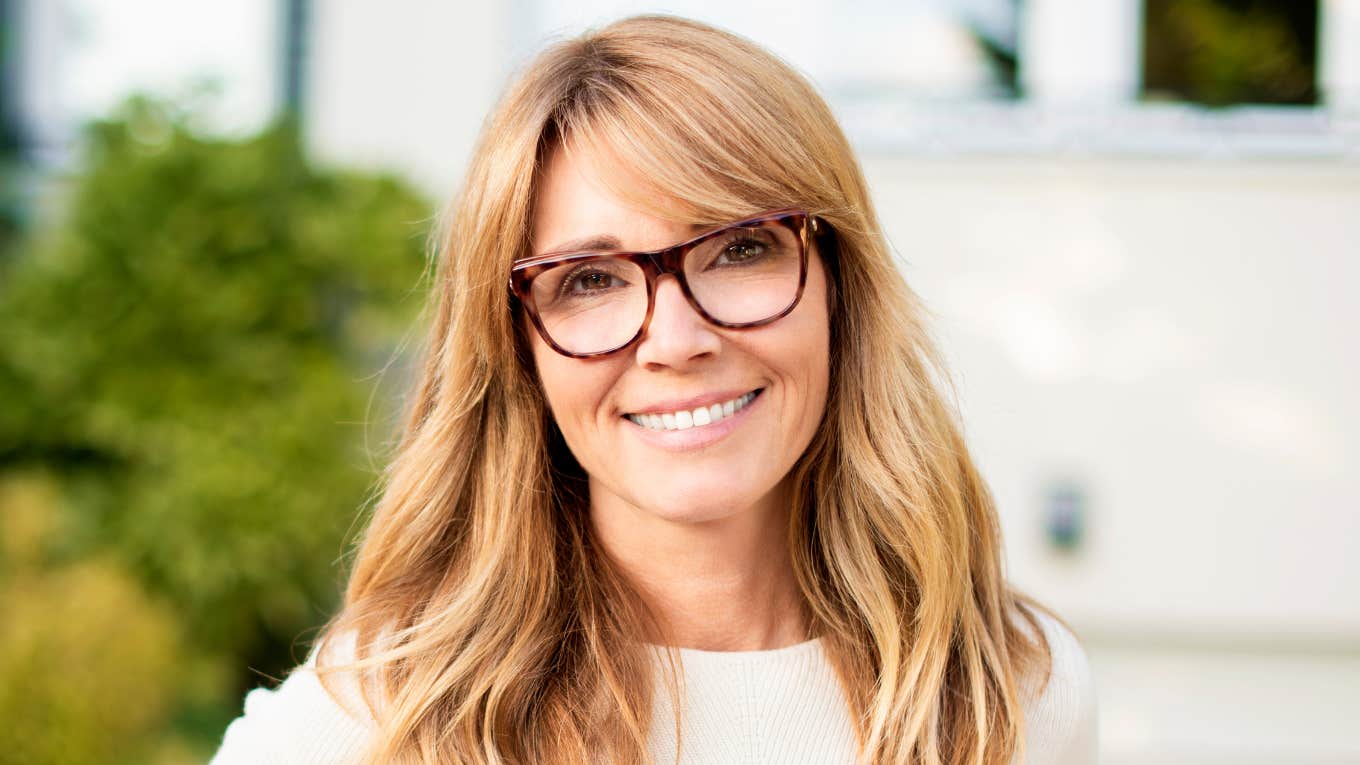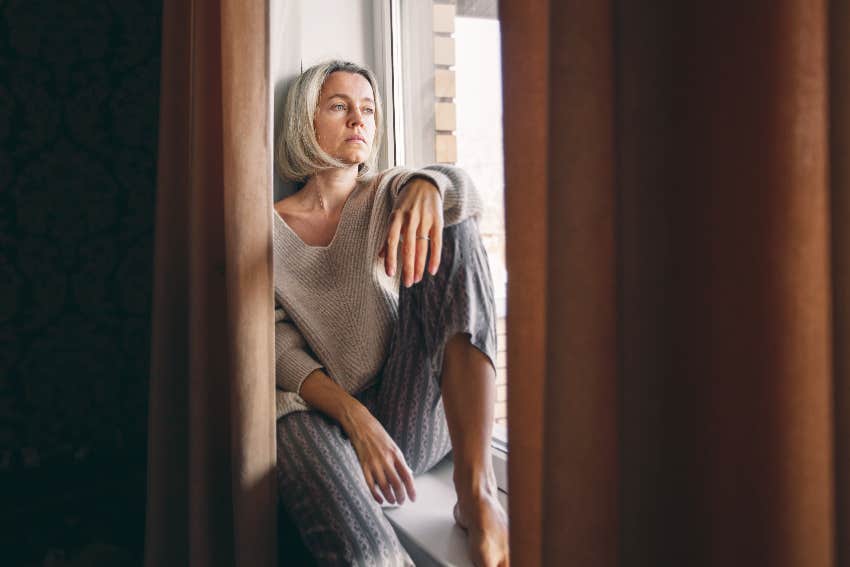The Hidden Landmines I Wish I Considered Before Retiring Early — 'I Was Idealistically Ignorant'
I had all the time in the world, and no idea what to do with it.
 Szepy | Canva
Szepy | Canva Sitting alone in our trailer, I feel darkness descending on me like a cold shiver that starts in my spine. My body begins to tingle, or maybe it’s more like a buzz, and I slump further under the blanket covering my legs. It’s a beautiful fall day in Washington State, so why do I feel like I’m sinking into the chilly gray water of Puget Sound?
When we retired a little over two years ago, I wasn’t aware there’d be days like this. All I saw before me was space and freedom. But in everything, there is light and darkness, yin and yang, bliss and sadness.
I chide myself now for being idealistically ignorant about the hidden landmines of retired life.
When I walked away from my career as a healthcare manager, I was more than ready to leave behind my never-ending in-box, strategic decision-making, and the weightiness that came from caring for seventy employees and eight separate facilities.
So many things surprised me in retirement, and now, two years in, I’m surprised again. Maybe my surprises can become someone else’s strategies for success.
Once we got through the beginning months of retirement, I was surprised by the hidden landmine of productivity expectations.
We stayed busy the first few months as we sold our possessions and got our house ready to hit the market. It was easy to trade work accomplishments for sell-our-house busyness.
However, once we settled into traveling and later arrived in Jacksonville, FL, where we were spending the winter, I started to feel guilty on days when there wasn’t anything urgent or important to do.
I felt the need to justify rest or TV watching even though I was exhausted in a way I hadn’t experienced before. It ended up taking several months before I finally felt rested. I wish I had been aware of my need to recover from the stress of my career so that I could have been more kind to myself.
 Kaspars Grinvalds / Shutterstock
Kaspars Grinvalds / Shutterstock
In America, we’ve elevated productivity to the status of a god. When we ask someone how their day was, we usually get a list of the things that were accomplished. It’s almost as though our worth is defined by the number of tasks we complete. I wish I had known about the potential for struggling with feeling unproductive.
I wish I could have prepared for a mindset that prioritized taking care of myself and restoring the balance in my life, which had been so skewed in the direction of succeeding at work. I wish I could have enjoyed lazy days where fun was my only focus.
Another hidden landmine I wish I had seen when I retired early is that we are built to fulfill a purpose.
Without a sense of contributing to something meaningful, our drive to find significance in our actions will run us into the ground. We’ve often heard statistics about people dying soon after retirement, and it’s believed that the lack of purpose is the cause.
My mindset as a healthcare manager was rarely focused on productivity. My goal revolved around ensuring our employees were cared for and happy. When that sense of purpose was removed from my life, I scrambled to figure out what to focus on and how to better understand my value.
Just a note of distinction here: I believe value and purpose are separate but intertwined. Value has to do with who we are, while purpose is defined more by what we do. One of the greatest threats to retiring successfully is believing that what you do is who you are.
When I retired, I lost the group I’d taken responsibility for, and suddenly, another hidden landmine appeared: how to figure out a meaningful focus.
Thankfully, I didn’t believe that my career gave me value, and I didn’t walk away from my job wondering who I would be without it. I needed to figure out how to express myself now that my career was in my rearview mirror.
I wish I could have prepared for this part of the transition. Had I realized I would lose my purpose, I would have spent time figuring out what came next.
Transitions like retirement have the potential to ignite creativity in us. Years ago, I read a fascinating book called The Way of Transition. It was written by a college professor who gave his students a pivotal assignment each year. They were asked to write their obituary.
The professor studied the responses year after year and realized that most students characterized their lives by their transitions. Whether it was their parents’ divorce or the death of a beloved pet, their lives were marked by the alterations that happened after a transition.
The author championed the idea that we see transitions as a time and space to cultivate creativity. Rather than rushing through a change, he suggested we take the time to learn and grow from it.
As I transitioned into retirement, I realized I could use my passion for writing to care for others. If I could describe what I’ve been through and how I’ve grown through pain and trauma, maybe someone else can be helped by my experience.
I didn’t head into retirement with the thought of creating a new career for myself, but that’s exactly what happened, and though I couldn’t be happier about it, it’s come with its own set of pitfalls.
Secret struggles shouldn’t stay secret — navigating the hidden landmines of retirement has been challenging but certainly doable.
We’ve learned many lessons, experienced new challenges, and navigated a changing financial landscape with fluidity and flexibility.
One of the changes we made was my wife venturing into the world of seasonal retail work. For a thirty-five-year veteran healthcare worker, it was quite the change. She’s enjoyed learning new skills, working with good people, and putting money into our dwindling bank account.
But the change has been difficult for me, a mild extrovert who thrives on engagement. When she’d leave for a full day of work, I often felt out of sorts. Not quite sad and not anxious, but like I was living inside a dark cloud.
 Gladskikh Tatiana / Shutterstock
Gladskikh Tatiana / Shutterstock
For a couple of months, I kept this a secret. I tried to do just enough writing or chores around the trailer to be able to look like I was, you guessed it, productive.
My childhood trauma instilled in me a dangerous ‘you can only count on yourself’ philosophy that I’ve worked hard to dismantle over the last several years. So, when I suddenly felt like I was hiding something, I knew it was time to come clean.
Telling my wife, my daughter, and my son-in-law, whose property we live on, that I was struggling emotionally when my partner worked long shifts felt freeing. Though there are still days when I struggle, I’m finding it easier to be honest.
What surprised me was that I didn’t see it coming, but I should have. I know myself well enough to know that socializing breathes life into me.
Before we retired, I hadn’t considered I was leaving behind days filled with interactions with colleagues. When I started writing seriously in January of 2022, I hadn’t considered that life as a writer was mostly a solitary journey.
The great news is that there are solutions to the hidden landmines of early retirement, and if you find yourself in a similar situation, here are a few things that have helped me:
1. Connecting with other people online. I am in close virtual contact with two groups of writers. One is a group that was originally formed on Twitter Spaces, and in so many ways, these women have become my people. We meet over Zoom and share a private Facebook chat thread to keep each other supported and updated.
2. Find a passion project. I am a part of a wonderful team of writers who edit for Medium. I was thrilled to be asked by Debra G. Harman, MEd., to join her team of editors, and it’s been fantastic to connect via our Slack channel throughout the day. Knowing that our team is resonating in the background as I write at my desk feels like an emotional safety net.
3. Flex your social muscle. I have a close friend who is also a fellow creative and who independently operates an interior design business. She, too, was struggling to find engagement during long work days alone in her home. We decided to meet once or twice a month at various coffee shops for co-working days.
We have a great system where we spend the first fifteen to thirty minutes catching up and sharing details about what we plan to work on. Then, we spend the next several hours working on our respective projects.
At the end of the time, we plan our next co-working session and head back home. It’s been highly valuable for both of us.
As I’ve written about retirement over the past year and a half, I’ve seen that those pieces have been the most widely read. Here’s to hoping these shared secrets will be of value to others.
Kim Kelly (she/her) is a writer and speaker who writes about authenticity, retirement, relationships, and life on the road.
